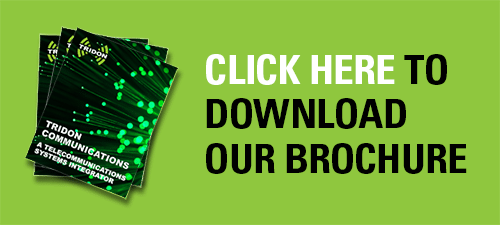
Dispatch consoles play a critical role in managing communication across various industries, from emergency services to large enterprises. Over the years, technological advancements have dramatically transformed the functionality and efficiency of these consoles, transitioning from analog to sophisticated digital two-way radios systems. This evolution has had a profound impact, particularly in sectors relying on seamless communication, such as public safety, transportation, and industrial operations.
Explore the journey of dispatch consoles from analog to digital, and the implications of this shift, especially in regions like Western Canada, where industries in Alberta rely heavily on such technologies.
The Early Days: Analog Dispatch Consoles
Analog dispatch consoles were the first generation of communication systems, widely used across various industries. These consoles relied on analog signals to transmit voice data, providing a straightforward, if somewhat limited, method for communication. Analog systems were often praised for their simplicity and ease of use, but they came with inherent limitations.
Analog systems tend to suffer from signal degradation over long distances and were susceptible to interference. In vast regions and remote areas, maintaining clear communication was a constant challenge. Analog consoles also offered fewer customization options and integrating them with other systems was often complicated.
Despite these drawbacks, analog dispatch consoles laid the foundation for future communication systems. For many years, they served as the backbone of critical communications in sectors like public safety and transportation. However, as technology advanced, so did the need for more efficient, reliable, and feature-rich solutions.
The Shift to Digital: Introducing Digital Two-Way Radios
The introduction of digital technology revolutionized dispatch consoles and communication systems. Digital consoles became a game-changer, providing a level of clarity and efficiency that analog systems could not match. One of the most significant benefits of digital systems is their ability to eliminate background noise and interference, which is crucial for industries that operate in noisy or challenging environments, such as oil and gas companies in Alberta.
Digital consoles convert voice into digital data, which is then transmitted over the airwaves. This results in improved audio quality, even over long distances, making communication clearer and more reliable. In addition, digital systems allow for advanced features like GPS tracking, text messaging, and integration with other digital tools, offering businesses in regions like Edmonton and Calgary a comprehensive communication solution.
The flexibility of digital consoles is especially beneficial in large operations that require precise coordination. For example, a digital two-way radio system can be integrated with Motorola dispatch consoles, allowing dispatchers to communicate more effectively with field personnel. This seamless integration improves response times and enhances operational efficiency, whether it’s for emergency services or large-scale industrial operations.
Digital vs Analog: Key Differences
One of the key questions organizations face when upgrading their dispatch systems is: digital vs analog? Understanding the key differences can help industries in Western Canada make informed decisions about their communication systems.
- Audio Quality: Digital systems offer superior audio quality compared to analog. Analog signals degrade over distance, resulting in static or dropped communication. In contrast, digital two-way radios maintain clear audio over long distances, making them ideal for industries in remote areas.
- Signal Coverage: Digital systems provide better coverage, with fewer dead zones. This is particularly important for industries in Alberta and Western Canada that operate across vast geographical areas, ensuring that workers in the field can stay connected with dispatch, even in remote locations.
- Advanced Features: Digital radio systems offer more than just voice communication. Features like GPS tracking, text messaging, and data integration provide additional tools for industries to manage their operations. These capabilities are especially beneficial for dispatchers in busy hubs where real-time coordination is essential.
- Scalability: Digital systems are more scalable than analog, making them a better long-term investment for growing industries. As businesses expand or require more complex communication networks, digital systems can easily accommodate these changes.
- Battery Life: One lesser-known advantage of digital two-way radios is their battery efficiency. Digital radios often last longer on a single charge compared to analog radios, which is critical for industries that operate around the clock, such as emergency services and transportation.
The Benefits of Upgrading to a Digital Two-Way Radio System
Enhanced Reliability
Improved Security
Greater Efficiency
Environmental Sustainability
Future of Dispatch Consoles: What Lies Ahead?
The future of dispatch consoles is promising, with continued advancements in digital technology expected to further enhance communication systems. The rise of artificial intelligence (AI) and machine learning could lead to smarter, more responsive dispatch systems capable of predicting and responding to events in real time. This would further improve efficiency and safety across industries.
Additionally, the integration of 5G technology will likely enhance the capabilities of digital two-way radios and dispatch consoles, providing even faster and more reliable communication. In regions like Western Canada, where industries rely on quick and clear communication to manage large-scale operations, the adoption of 5G will be a game-changer.
Industries can expect to see more innovative features like real-time video streaming, advanced data analytics, and even the potential for autonomous dispatch systems. These advancements will continue to push the boundaries of what dispatch consoles can achieve, further solidifying the dominance of digital systems over analog.
Contact Tridon Communications
The transition from analog to digital dispatch consoles marks a significant milestone in the evolution of communication systems. As industries continue to expand and demand more efficient communication solutions, the advantages of digital two-way radios over analog systems are clear. From improved audio quality to advanced features like GPS tracking and data integration, digital systems provide the reliability, scalability, and security that modern industries need to thrive.
At Tridon Communications, we specialize in helping businesses make this transition to digital two-way radio systems. Our team can help you find the best communication solutions tailored to your needs. Contact us today to learn more about how we can support your operations with state-of-the-art digital dispatch consoles.



